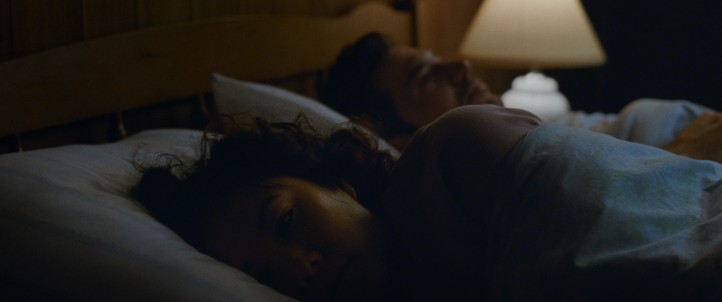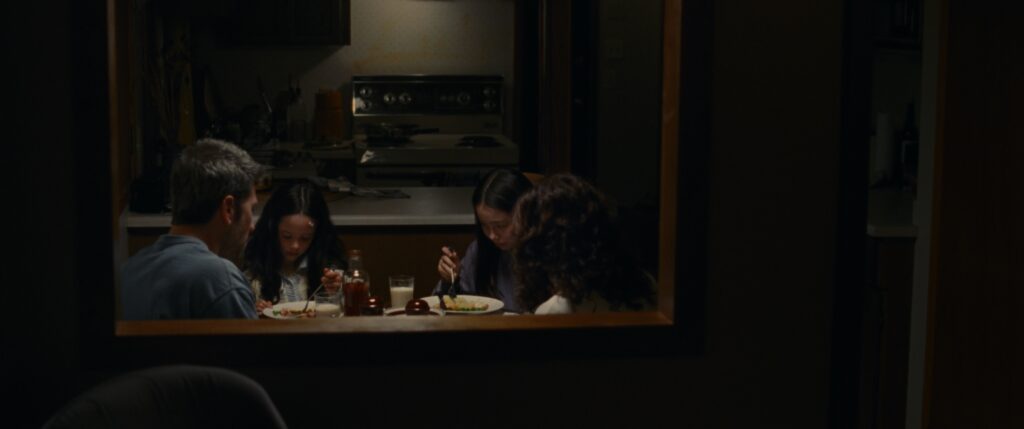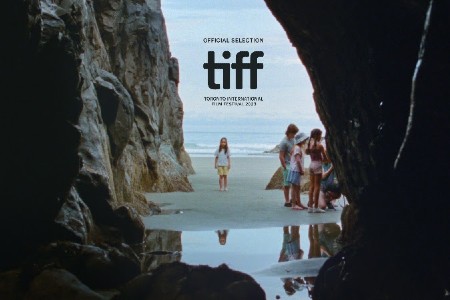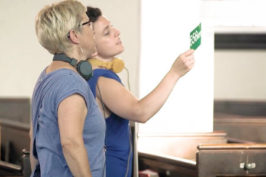Set in the mid 1990’s, a Japanese Canadian woman grappling with the recent death of her mother brings her family to a self-development retreat. When her distressed relationship with her husband begins to affect the children’s emotional security, the family is forever changed.
Meredith Hama-Brown‘s Seagrass tackles some big and heavy themes early on. Although grief and loss are prominent in the film, the notions of culture, family dynamics – between husband and wife, as well as, between sisters – also come to the surface.
The film is set in the Summer of 1994 and begins with this family of four on their way to this retreat. And so, in a desperate attempt to save her marriage and family, Judith (Ally Maki) gets her husband Steve (white, Canadian; Luke Roberts), and two daughters Stephanie (Nyha Breitkreuz) and Emmy (Remy Marthaller) into the car… and off they go.

From their arrival to the retreat location, there is a palpable tension that permeates the air. The girls are trying to fit in with the other children. The parents have a difficult time communicating in the group circles, which is unsettling to watch. In a few days, the parents befriend another mixed couple, Pat (Chinese Australian; Chris Pang) and Carol (white, Canadian; Sarah Gadon), who seem to have the perfect marriage. Judith is not as pleased with these new ‘friends’ and soon develops more resentment towards her husband. At the same time, the girls continue to struggle with the children’s group and their own sense of security crumbles.
The way the adult relationship unravels is mainly ‘seen’ through Stephanie and Emmy’s point of view. Both know something is not right between their parents, however, they do not really know how to cope or deal with their parents’ ongoing fights. The girls are also grieving and missing their grandmother yet the adults are unable to comfort them. Watching the girls try to make the best of the retreat activities while also encountering microagressions by other non-mixed children is also sad and frustrating.

Although at times it is a difficult watch, this is what makes Seagrass worth sitting through. Navigating marital discord, anxious children and trying to keep the family together is not easy. It is through sitting and sifting through the uncomfortable parts of life, and those uncomfortable feelings, that change and healing can take place.
In her director statement, Hama-Brown writes “Seagrass is a fictional film that looks at some themes that are personal, however, it is not based on my family directly or on events in my life. When writing Seagrass, I was interested in looking at divorce, but not so much asking the central question of whether a couple would stay together. Instead, I was curious to uncover how this fundamental event in a family causes each characters’ internal foundations to destabilize under the uncertainty.”
I had the pleasure of meeting up with Hama-Brown prior to the film’s premiere at TIFF 2023. Below is our conversation where she speaks in more detail about the process of writing and casting the film, other great production notes, and her hopes for the film.
Seagrass is currently showing at cinemas across the USA and Canada.






